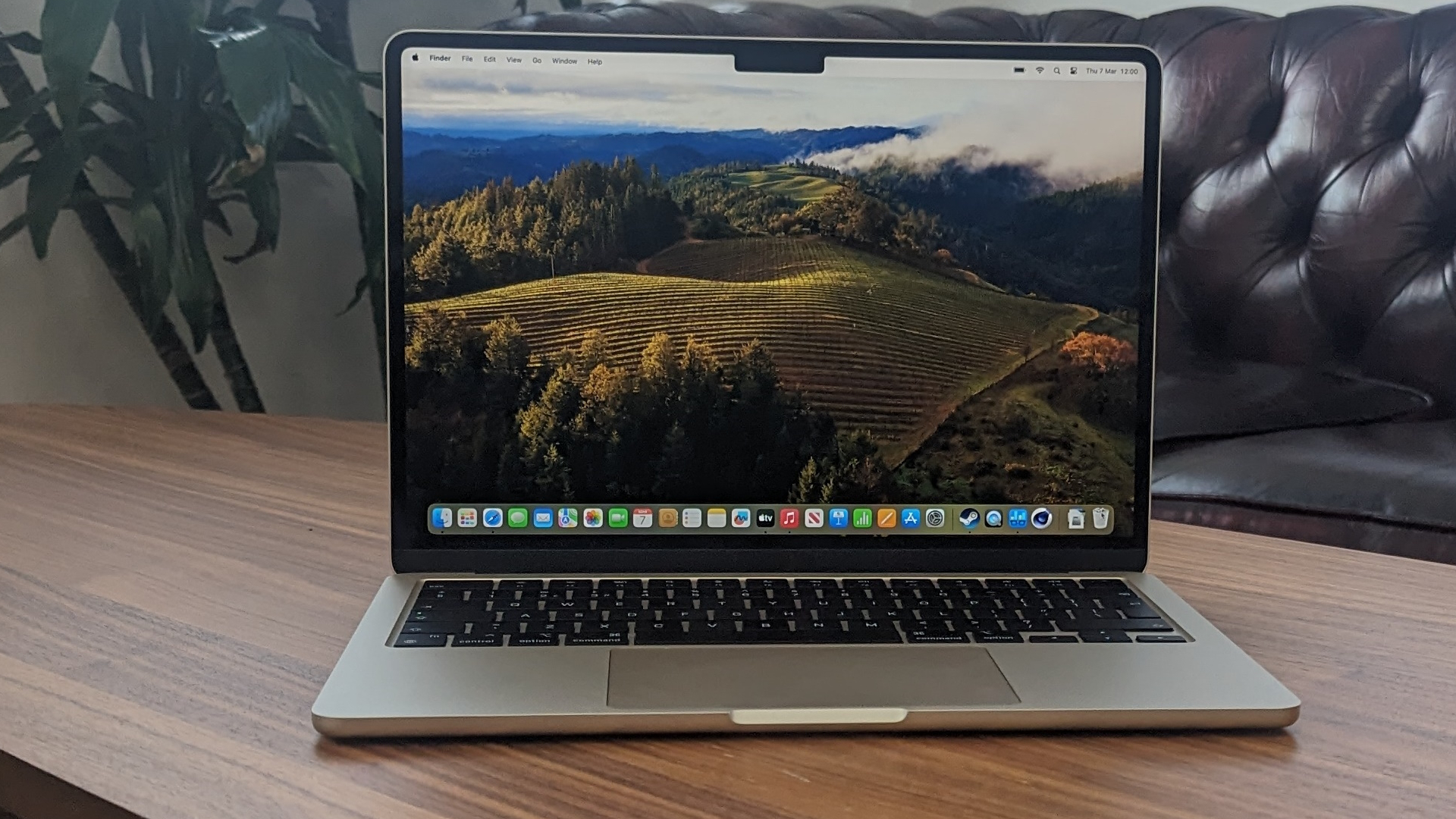
- Apple’s MacBook Air may not get OLED until 2028 or even later
- Previous rumors suggested the screen upgrade could come in 2027
- It seems Apple is having difficulty balancing cost and supply chain issues
Apple’s plans for introducing OLED screens with its laptops seem to be a constant churn of rumors, and here’s another which claims that as far as the MacBook Air is concerned, it may not get this display upgrade until well into the future.
While the MacBook Pro is still expected to make the move to OLED in 2026 – bearing in mind this is just rumored, although it’s been put forward quite strongly at this point – the MacBook Air might have to wait until 2028, or possibly even later.
That’s the word from a new report published by Korean tech site The Elec – again, add skepticism appropriately – which asserts that, according to industry sources, the MacBook Air won’t get the OLED treatment in 2027 as previously rumored.
Why not? Well, the reason is wrapped up in pricing, as well as issues with the supply chain.
The MacBook Air is, of course, Apple’s mainstream laptop targeted at the consumer, and its pricing is quite different to the MacBook Pro, which is aimed at professional usage (and creatives, or enthusiasts, or others with deeper wallets when it comes to spending on tech).
Introducing OLED is a fair old hike on the cost of the laptop, as you might expect – fancy screens do not come cheap. And while this isn’t such an issue for the more weightily priced MacBook Pro, it’s more of a problem with the MacBook Air, which can’t take so much strain put on its affordability.
What this means is that Apple needs to suss out how to make the MacBook Air and OLED work, price-wise. Rather than using two-stack tandem OLED tech – panels with two emission layers, offering better brightness, and longevity of the screen – as rumored for the MacBook Pro, Apple could look at a single-stack OLED panel for the MacBook Air.
Essentially, a cheaper approach, one that would also differentiate between the quality of these laptops, and product segmentation that Apple would obviously want to maintain. There must be a reason to pay a lot more money for the MacBook Pro, after all.
A tricky balancing act

The long and short of it is that it sounds like Apple is exploring its OLED options here, and finding that supplies and choices are currently scarce on the ground in terms of more affordable routes forward. The result being that working out the reality of a MacBook Air OLED could take a deal longer than anticipated, waiting for the supply chain to be in better shape to hammer out an affordable deal for the screen upgrade – hence the possible delay to 2028, or further out.
Just to underline we should be cautious about this chatter, but that said, all of the above does make some sense. Furthermore, as MacRumors, which spotted the report, also observes, the iPad Pro OLED has not pulled the sales Apple had hoped for, and shipment numbers have dropped substantially this year – from an anticipated 10 million units of the tablet, reportedly down to 6-7 million. Which may stoke worries for Apple regarding the appeal of OLED on the MacBook Air, in the nearer term.
As far as the consumer is concerned, we guess the obvious worry from their perspective is that if we’re starting to talk about compromises for cheaper OLED – and losing the longevity benefits of the two-stack tandem solution for the MacBook Pro screens – how might MacBook Air OLEDs fare well down the line into their life? We are getting well ahead of ourselves here, though, into deeply speculative territory.







